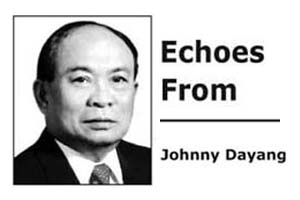CRITICAL times often bring out the best from among leaders. In the Philippines, the horde of sickening political opportunists has stunted the rise of new ideologues whose political direction can be categorized as “thinking out of the box.”
Manila prides itself of tough but benevolent Mayor Isko Moreno, while Pasig stands by Mayor Vico Sotto, an intensely populist leader with common sense. In San Juan, Mayor Francis Zamora has abandoned rotten political practices that hounded his turf in the past. All three city mayors are young, straightforward, and intrepid.
In Manila, Moreno patiently confronted street chaos with a simple appeal to return the sidewalks to the people. In Pasig, Sotto revived the old Kadiwa concept as crisis response. To address the traffic bottleneck at Greenhills, Zamora cleared streets of illegally parked cars. Traditional politicians surely have shied away from these options.
For a country whose progress has largely been impeded by the inability of leaders, many of them shackled to pernicious ways, to fully embrace the decency and honesty required of their public offices, the rise of new ideologues creates a strong statement on the resolve to rethink the way we cast our trust on people we want to handle the affairs of government.
The rise of this new breed of young managers, however, has also rubbed on other youthful leaders outside the metro. In other parts of Luzon, similarly maverick mayors, mostly in their early adult years, have discarded the usual rice-and-sardine strategy. Instead, they distributed fresh fish, vegetables, 25-kilo sacks of rice, newly harvested fruits, and live poultry.
The need to adopt practical, simple, and manageable ideas in times of crisis, though some are upgrades of past practices, awakens us to the truth that political royalty and partisan alliance play a negligible part in the way state programs must be pursued. Eloquence in public speaking alone produces no appreciable results because incorrigible politicos almost always protect their personal interests to the disadvantage of their constituents.
Electing young, decent, and trustworthy people whose principles are attuned to public welfare should encourage voters. By supporting individuals whose passion for public service is not bound by indecent coalitions, we can be assured of leadership that understands and recognizes issues they way they should be.
Elections are still two years away but the hunt for decent and deserving prospects is now. We need leaders with the drive to become true models.


